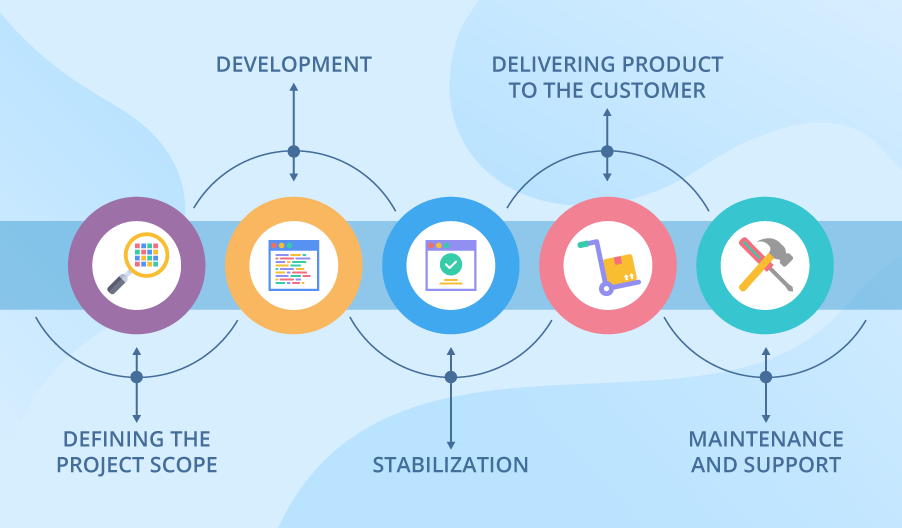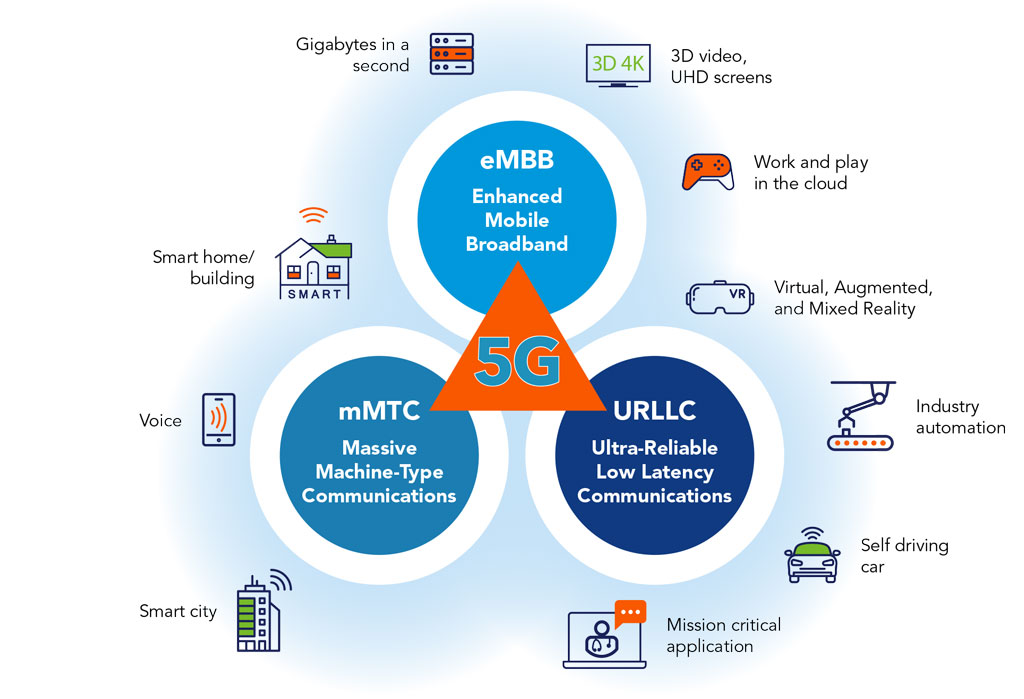The world is on the cusp of a new era in wireless technology – 5G. This next generation of cellular connectivity promises much faster speeds, lower latency, and more reliability than ever before. But what does that mean for the software development industry?
In the past, increased speed and capacity have led to major changes in how we develop and deploy software. For example, the introduction of 3G networks spurred the development of mobile apps, while 4G enabled new services like streaming video and live-streaming gaming.
When it comes to the world of software development, we can expect to see plenty of changes once 5G technology is incorporated. For starters, 5G will allow for much faster data speeds, which will in turn lead to quicker software development cycles.

What is 5G?
5G is the next generation of mobile networks. It is much faster than current 4G networks, with speeds of up to 10 gigabits per second. This means that 5G will be able to handle a lot more data traffic than 4G, making it ideal for applications such as streaming video and gaming.
What’s more, 5G has lower latency than 4G, which means that there is less delay between when a user sends a request and when they receive a response. This is important for applications that require real-time responses, such as virtual reality or augmented reality.
What are the implications of 5G for software development?
The arrival of 5G is likely to have several implications for software development.
- Richer and more interactive applications
The increased speed and capacity of 5G networks will enable developers to create richer and more interactive applications. For example, video streaming applications will be able to offer higher-quality video content, and gaming applications will be able to offer more realistic and responsive gameplay.
- New types of applications
5G also offers significantly lower latency than previous generations of wireless technology. Latency is the time it takes for a signal to travel from one point to another, and it’s an important factor in many applications. For example, in multiplayer gaming, lower latency can mean the difference between winning and losing. With 5G, developers will be able to create applications with near-instantaneous response times, which could open up new possibilities in gaming, virtual reality, and other latency-sensitive applications.
- New types of battery-powered devices
The increased energy efficiency of 5G networks will enable developers to create new types of battery-powered devices, such as wearable devices and internet-of-things devices. This could lead to the development of new types of applications that make use of these devices, such as fitness-tracking applications and smart home applications.
- Increased demand for mobile apps
As 5G wireless networks become more widespread, there will be greater demand for mobile apps that can take advantage of the increased speeds. Developers will need to create apps that can make use of the new capabilities of 5G networks, such as high-definition video streaming and real-time data analysis.
- More powerful mobile devices
5G networks will require more powerful mobile devices to take full advantage of their capabilities. This means that developers will need to create apps that are optimized for the increased processing power and storage capacity of these devices.
- Increased need for security
With the increased speed and power of 5G networks, there will be a greater need for security. Developers will need to create apps that are secure against hacking and data theft.
- New business models
5G networks will enable new business models that are based on real-time data that can be collected and analyzed with the new network. Developers will need to create apps that can take advantage of these new business models.
- More global collaboration
5G networks will make it easier for developers to collaborate with others around the world. This is because the increased speeds and low latency of 5G will make it possible to work on projects in real time, regardless of location.
- New career opportunities
With the advent of 5G, there will be new career opportunities for software developers. The demand for mobile apps that take advantage of 5G networks will create new job openings for developers with the right skill set.
- Increased competition
The increased demand for mobile apps that take advantage of 5G networks will result in increased competition among developers. Those who can create high-quality apps that meet the needs of users will be in the best position to succeed.
- Faster Software Development Cycles
One of the biggest changes that we can expect to see in software development once 5G is incorporated is faster software development cycles. This is because 5G will allow for much faster data speeds, which will in turn lead to quicker software development cycles. In addition, 5G will also enable more connected devices and IoT sensors, making it possible to collect more data than ever before. This data can then be used to improve software development processes and make them more efficient.
- More Connected Devices and IoT Sensors
Another big change that we can expect to see is more connected devices and IoT sensors. This is because 5G will enable more connected devices and IoT sensors, making it possible to collect more data than ever before. This data can then be used to improve software development processes and make them more efficient.
With the help of 5G, software developers will be able to get their hands on more data that can be used to improve their software. In addition, 5G will allow for more real-time testing and debugging, as well as quicker software updates. All of this will lead to faster and more efficient software development cycles.
- Edge Computing
One of the other big changes is the use of edge computing. This is because, with the help of 5G, it will become possible to develop and deploy software using edge computing. This means that instead of having to rely on centralized server farms, the software can be developed and deployed on devices that are closer to the end user. This will lead to faster and more responsive software applications.
Edge computing is a big shift in the way that software is developed and deployed, and it will have a major impact on software development once 5G technology is incorporated. With the help of 5G, software developers will be able to develop and deploy software much closer to the end user, which will lead to faster and more responsive software applications.

In summary
5G is expected to have a major impact on the software development industry. The increased demand for mobile apps that can take advantage of the new network’s capabilities will create new job opportunities for developers. The increased competition among developers will result in a need for those with the right skill set to create high-quality apps that meet the needs of users. 5G is expected to change the software development landscape in several ways.
Why choose QSS Technosoft Inc.?
QSS Technosoft has a team of highly skilled and experienced software developers who are well-versed in the latest technologies, including 5G. We have a proven track record of delivering high-quality mobile apps that meet the needs of our clients. Our developers can create apps that are secure, easy to use, and offer a great user experience. Contact us today to learn more about how we can help you take advantage of the opportunities presented by 5G.





